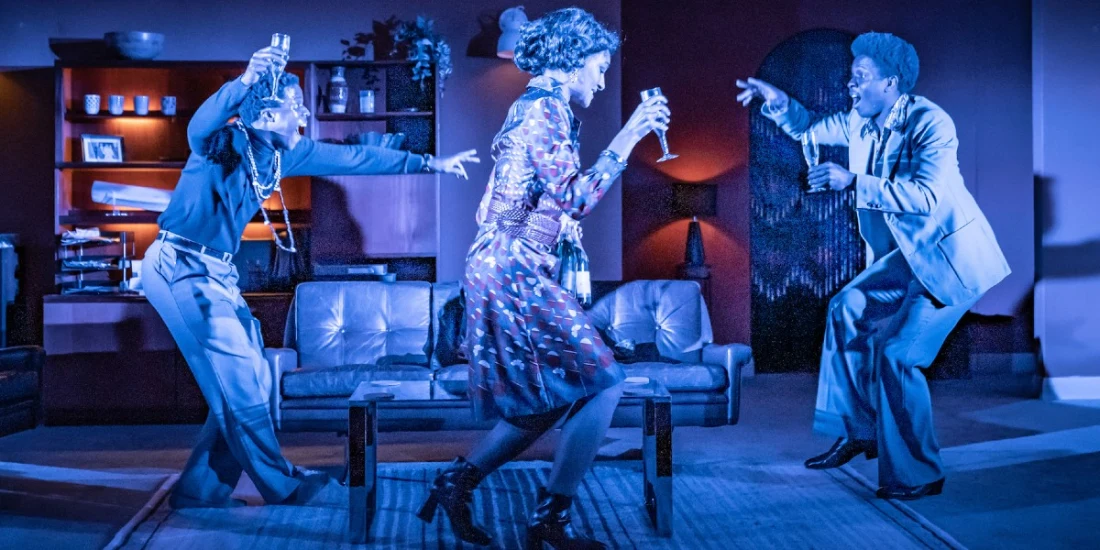'The Death of a Black Man' is just as relevant today as when the play premiered
The Death of a Black Man is a wild ride of a play. It confronts you with the racial politics of the 1970s as well as the pertinent economic, gender, and class divisions of the time, which at moments do not feel too distant from the climate of the present day.
The year is 1973. Shakie (Nickcolia King-N'da), a smooth-talking 18-year-old of West Indian heritage, is the proud owner of a swanky flat in Chelsea where the champagne flows and the music swells. He's paid a surprise visit by his older ex-girlfriend, Jackie (an exquisite Natalie Simpson) who is the baby-mother of his daughter Priscilla.
Shakie is also joined by his best friend Stumpie (Toyin Omari-Kinch) and the two young Black men believe themselves to be on the cusp of greatness. Shakie hustles by flogging African chairs made in Yorkshire for a significant mark-up in London. While Stumpie would rather make it big by investing in Black musicians who aren't heard on the British charts and often fail to get gigs at venues other than local pubs. The grafters differ in their views on the best route to success but are similarly unapologetic in their ambitions.
The best friends start with seemingly well-meaning intentions. Shakie seeks to reach the heights of Gary Sobers, the player on the West Indies cricket team who Shakie idolises for claiming victory over England on English soil. But when their grand money-making plans fail to materialise, the alcohol continues to flow, desperation kicks in, and chaos descends. Jackie is sidelined for much of the play but it's her devastating story arc which brings the drama to a crushing finale. Here, we see the harrowing lengths which the two men will go to to grab at success.
King-N'da plays Shakie with the youthful swagger of a man who oozes entrepreneurial flair and Omari-Kinch's portrayal of Stumpie convincingly captures the energy of a relentless man who is fueled by Black pride. The men have rotten attitudes towards women and many of their remarks will make audience members feel uncomfortable. That being said, their characters are undeniably unlikeable.
Alfred Fagon's writing succeeds in holding a mirror up to society and the structures in place which breed the toxic mentality to get rich or die trying as a means of survival and to avoid obscurity. The unfiltered dialogues between the two Black men about seeking to exist and make profits in an arena where they feel constantly oppressed feel particularly potent.
The scenes, which range from tension-filled highs to bitter lows, are skillfully helmed by Dawn Walton who makes her directorial debut at the Hampstead Theatre. The '70s era is brought to life through the brilliant set and costume design by Simon Kenny, which follows a visually pleasing retro colour palette.
Forty-six years on from its original production at the Hampstead Theatre, the issues explored in The Death of a Black Man still have political relevance and will resonate with many well beyond the end of the play.
Find out more about The Death of a Black Man at Hampstead Theatre here.
Photo credit: The Death of a Black Man (Photo by Marc Brenner)
Originally published on
